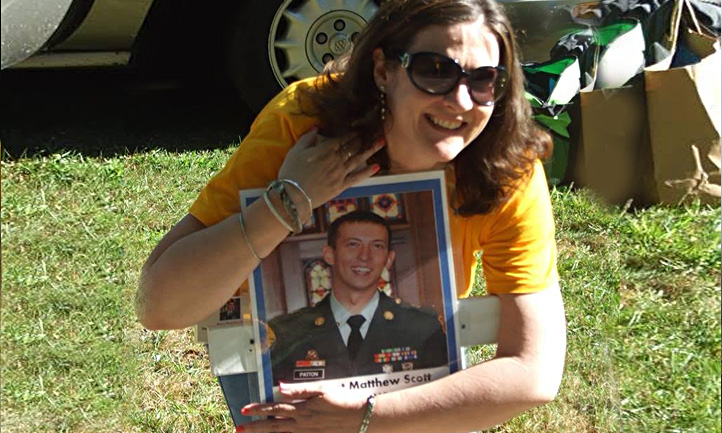The Healing Power of Mutual Support
Author: Lynn Patton
My son, SGT Matthew Scott Patton served in the Army for five years with one deployment to Afghanistan. On May 13, 2013, he killed himself. He was only 23-years old. That day began the most horrific time in my life; a continuous cycle of anger, disbelief, and devastation. Eventually I felt better as I began to talk to and help Soldiers through difficult times; I was trying to save someone else’s Matthew. I didn’t know about TAPS until COL Tim Luedecking gave me a name and number to call. I learned about the Peer Mentor program and knew as soon as I hit that 18-month mark I would take the required courses to become a Peer Mentor because for me healing involves helping others.

Life becomes chaotic when someone we love dies abruptly and violently, so I think it is imperative that we regain some control. I attempt to achieve this with my mentees predominantly through contact, active listening, and being present. I use email to contact my mentees, so they control how and when we communicate. I use active listening, so my mentees guide the subject matter, thereby controlling the conversation. Active listening involves the words spoken and the tone in which they are spoken, both of which help me follow the direction of the conversation, and more importantly, help me understand when the subject matter might need shifting, or that the conversation is nearing its end. “Being present” is essential to providing control to mentees. We need to know when to talk, but more importantly when to remain silent. If my mentee cries, I tell her I will stay on the line as long as she needs me. I quietly listen as long as necessary, until I hear a decrease in emotional intensity. This is when I say, I am still here and then ask whether or not she wants to continue the conversation. It can go either way, but in the end my mentee was in control the entire time and released the pain that had been trapped inside. This makes for powerful relationship building.
I have found that being a mentor is a continuous learning process. My three mentees, each of whom has suffered the same loss are remarkable women, and as such, the experiences I have had with each is unique. Nonetheless, we have forged symbiotic relationships and help each other through good and bad times; they are rewarding and healing. The development of mutual support has surprised me the most; it was something I never expected. Although we handle our losses as best as we can, we know we have each other. I started out as the mentor, but now my mentees help me just as much. It is one of my great wishes that we should not have to suffer the losses we endure everyday, but unfortunately we do. I consider it an incredible honor and privilege to share the journey with another mother through her own unique grieving process, which miraculously helps me survive my own loss. This is the beauty of being a Peer Mentor and the gift that TAPS gives to me, and I hope, my mentees.
